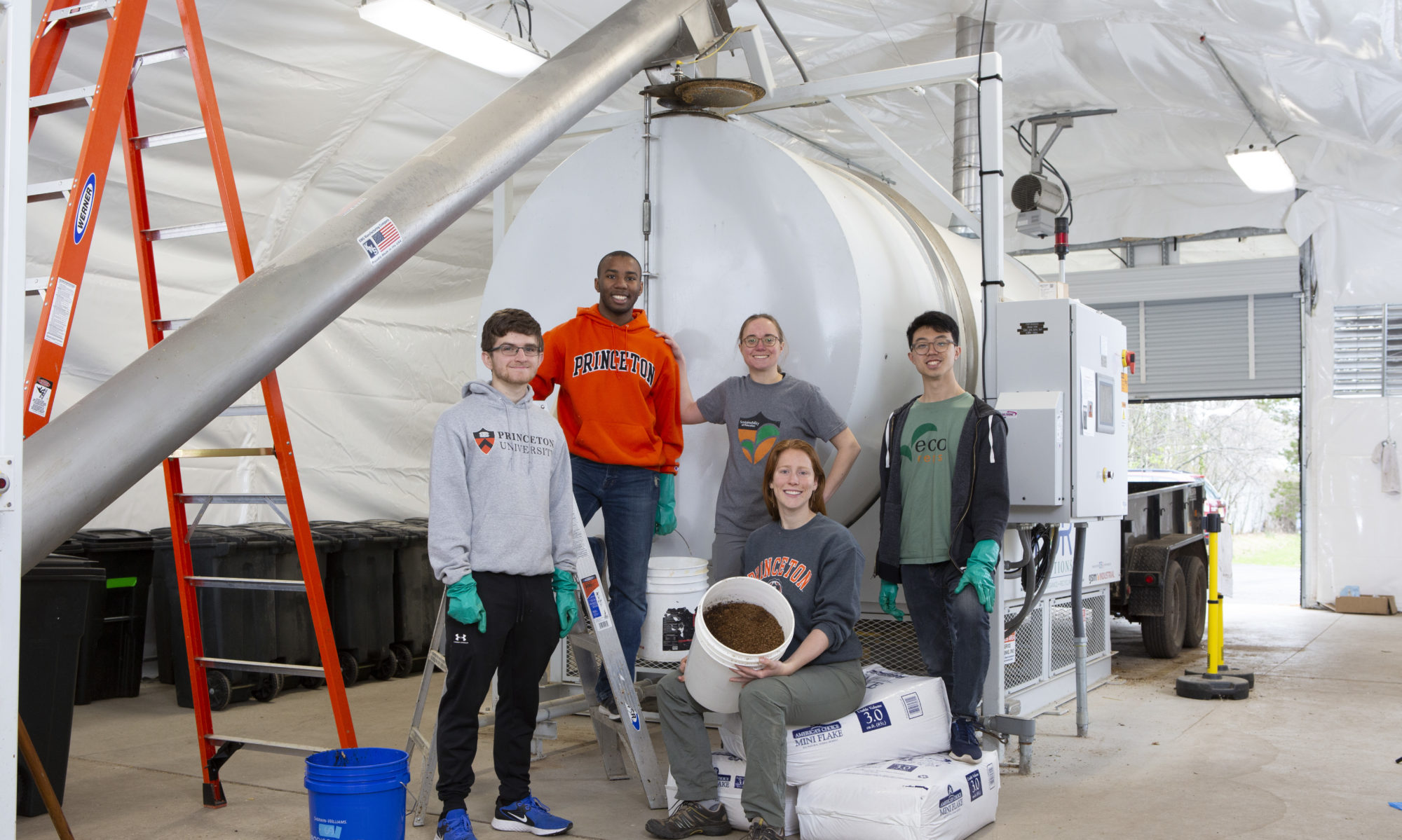Happy First Day of Fall Semester Classes!
I hope everyone had a relaxing summer! The ComPOSTer will be back on a regular basis with the start of classes, but before we dive into the new academic year, check out what we were up to in the last two months:
RESEARCH
Researchers in the Zhang Lab began their “Building Better Compost” study which involves analyzing the gas and microbial profiles along the composting process. The goal of the study is to inform baseline performance and how it might change by alerting different parameters such as feedstock types and ratios. Stay tuned for results!


Under the guidance of Dr. Jared Wilmoth, Gabby D’Arcangelo ’21 and Calvin Rusley ’20 regularly took feedstock and gas samples along the “compost trail” from when the feedstock first enters the drum, to inside of the drum, and then when it is off-loaded as compost at the end.
TRAINING
I had the opportunity to take a week long compost operations training course with the U.S. Composting Council last month in Ithaca, NY at Cornell University. By engaging in a combination of hands-on activities, lectures, and field trips to different composting operations, I came away with a wealth of knowledge on composting best practices and tools that we will implement and test at the S.C.R.A.P. Lab over the coming year.
Two of the biggest things that we will test to optimize the composting process are 1) pre-mixing carbon into the totes of uneaten food that are especially soupy and 2) adding and/or substituting wood shavings with alternative carbon sources such as straw, wood chips, and soiled food serviceware.


My group’s compost pile that we built using a combination of wood chips, uneaten food, animal manure and bedding (yes you can compost manure!). Left – measuring temperature of the pile on Day 2 ; Right – Steam rising from the pile when it was dissected on the last Day (5)


Field trips to a vermi (worm) composting facility followed by a facility that composts in 100-ft long aerated static piles.
To-Date Data
| Total Food | Academic/Residential Buildings | Campus Center/Cafes | Wood Shavings (BA/CS) | % BA/CS | Compost Off-Loaded | GHG Emissions Saved (MTCO2-eq) | |
| Cumulative (lbs) | 121,540 | 2,376 | 119,164 | 38,830 | 32% | 110,400 | 36 |
